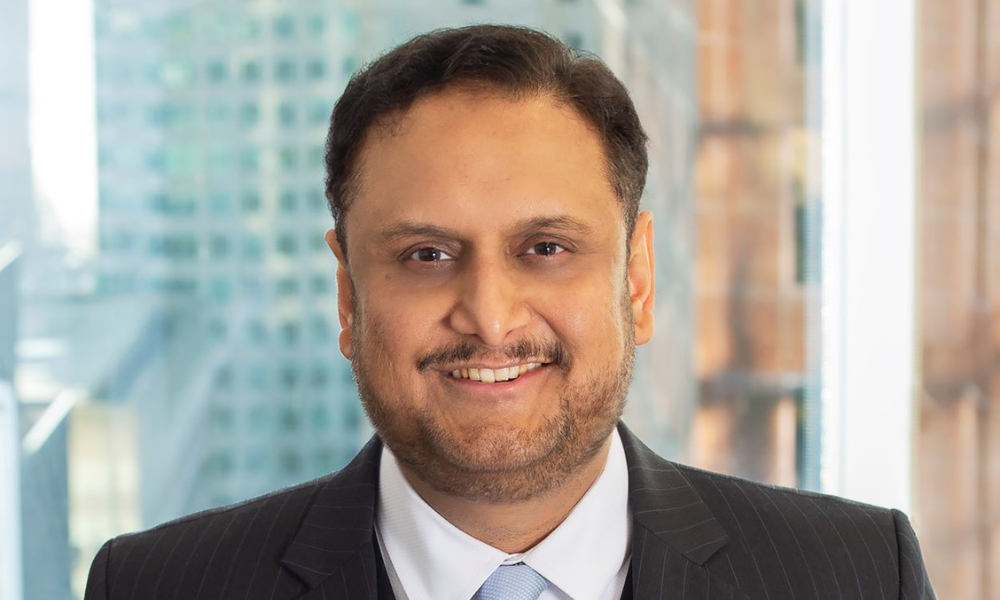Vanguard strategist has an even higher conviction in model and thinks investors should overweight bonds

While many have been declaring the traditional 60/40 portfolio is dead in the face of the current market and economic situation, one senior investment strategist said it’s not so.
“We have an even higher conviction about the 60/40 portfolio now than we had before,” Bilal Hasanjee, the senior investment strategist for Vanguard Canada, told Wealth Professional. “The reason is that interest rates have gone higher and too many investors believe that will mean lower expected return in future. In our opinion, that’s not correct.”
Hasanjee said Vanguard’s concerns have increased with the correlation between bonds and equities moving in tandem, so there have been more draw downs on the 60/40 portfolio lately, but he believed that synchronicity was temporary.
He noted that the return on a fixed income portfolio is comprised of two components: price and accrued interest. Once high interest rates impact the price component, longer-term portfolios will benefit from the higher rates. So, those with a 15-year retirement horizon can reprice part of their portfolio every three years and benefit from the higher interest coupons.
“They’d have five surge opportunities over the next 15 years. So, in a rising interest-rate environment, they can ride the yield curve and benefit from such high interest rates as they go forward,” said Hasanjee.
He said some investors also think bonds have lost their yield utility in portfolios, “but we think investors should be overweight on bonds, given the current conditions. “We believe that the higher interest rates are going to generate the benefit of higher coupons, which will be beneficial to the investors as long as their investment horizon is longer.”
Hasanjee noted that their global credit fund was generating a 6% yield, so locking in yields at that level would be key for good investment.
“If you’re investing in bonds, or overweighting bonds, with such high yield to maturity, you’re reducing your equity risk in the portfolio and compensating for it with more bond risk,” he said. “Basically, by doing that, you’re bringing the portfolio volatility down. And, when rates go down, in future, your portfolio will benefit from higher bond prices.”
He said that, until recently, it would have been difficult to get that kind of yield without taking on more risk and going into alternative investments, emerging market bonds, or emerging market equities. Now, advisors can achieve the same yield by having bonds in the portfolio, so they don’t need to take on much equity risk, though they will still need an equity component.
“Our 60/40 portfolio is not static. We basically change its allocation every quarter, though we’re not changing the underlying equities,” he said, noting that Vanguard now has reduced its equity exposure from 52% in June 2021 to 45% now with bonds comprising 55% of its portfolios.
He warned advisors not to invest in guaranteed investment certificates (GICs) because their funds are not liquid. They also bring a concentrated credit risk. Bonds, meanwhile, are more liquid. So, he added, “when interest rates go down, their prices will increase and the investor will get the full benefit of that.”



